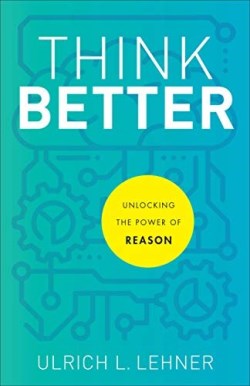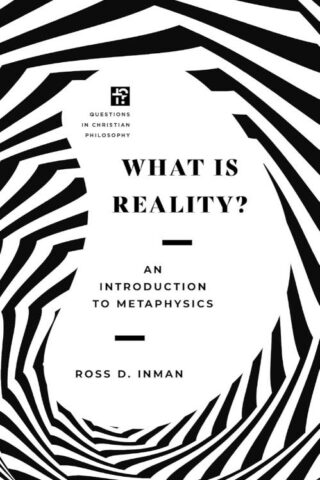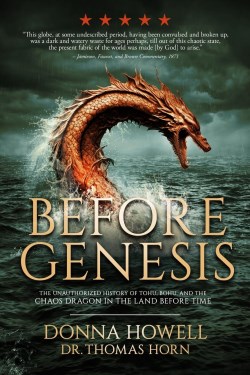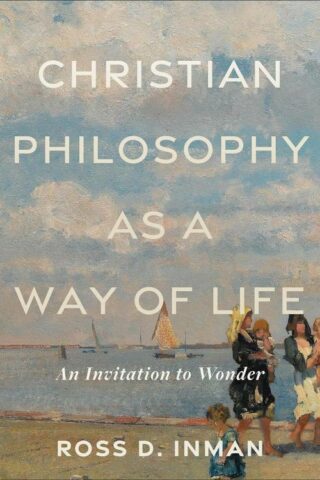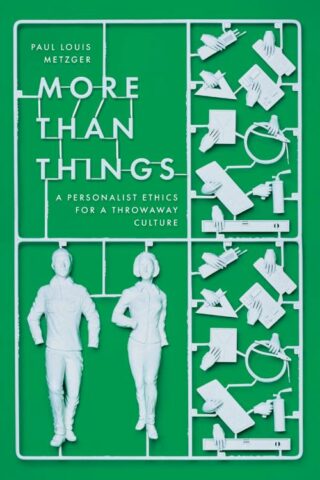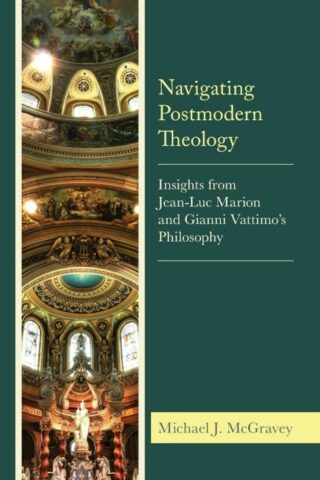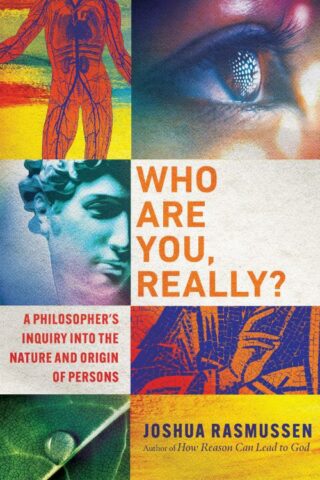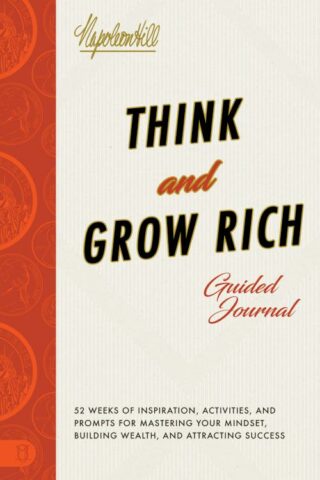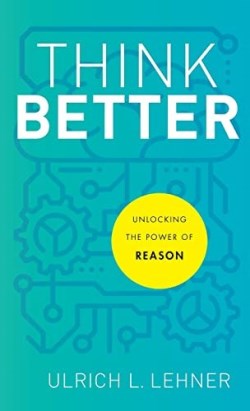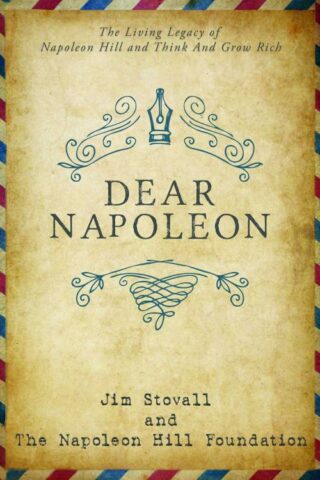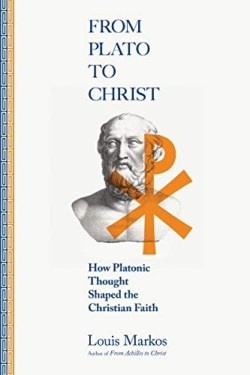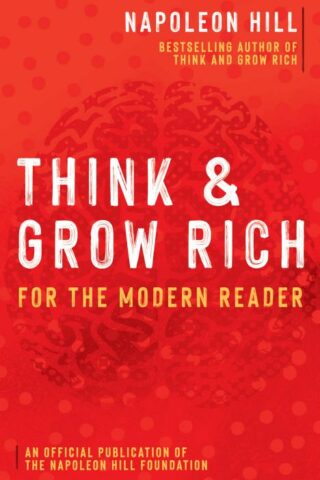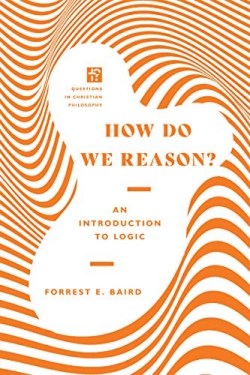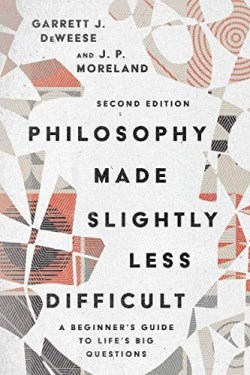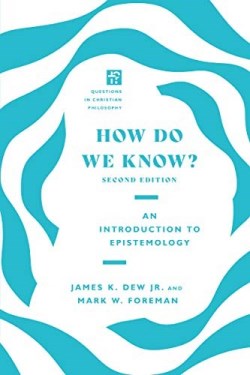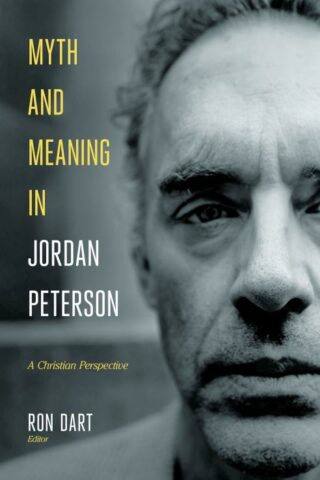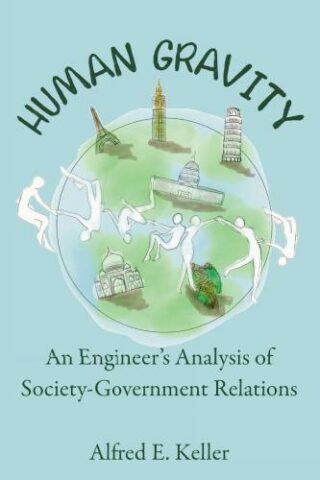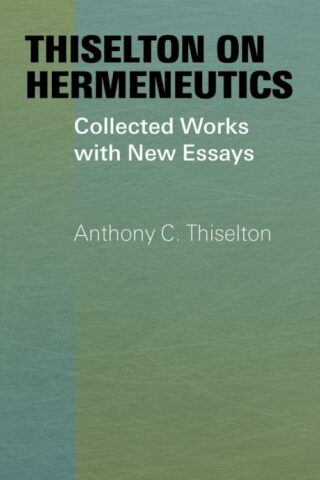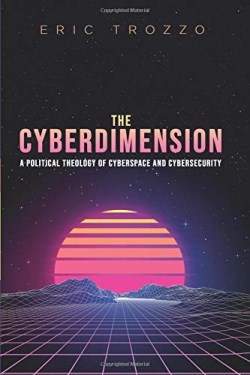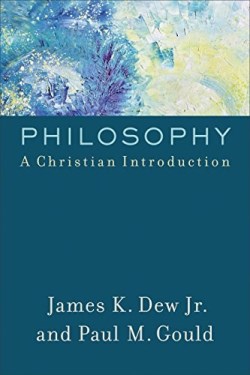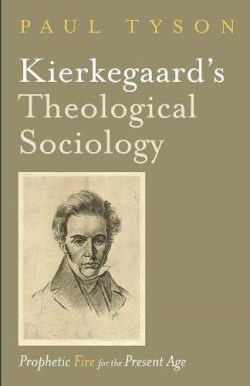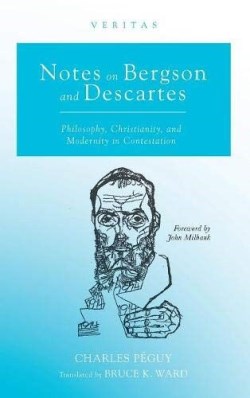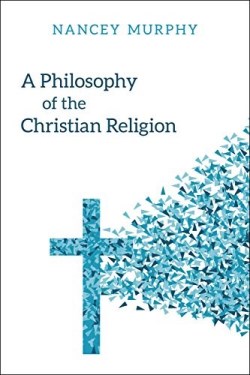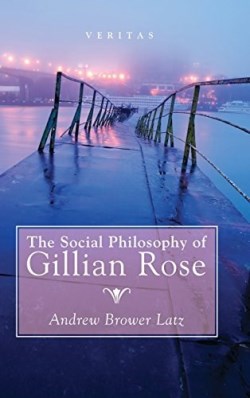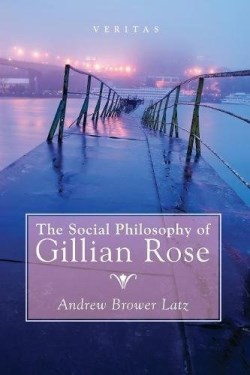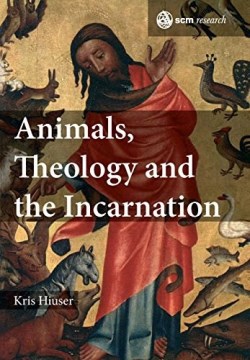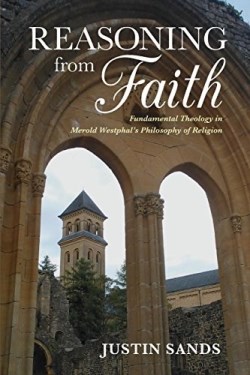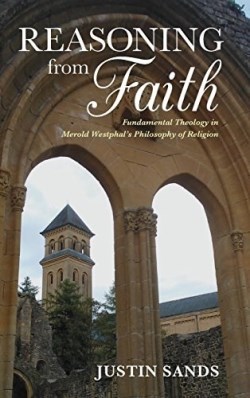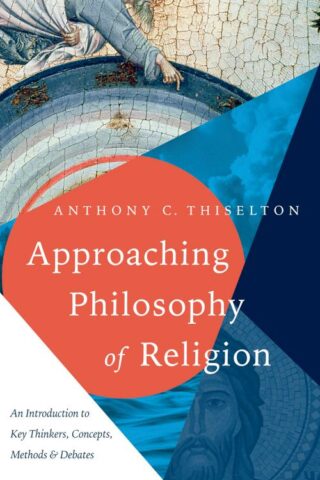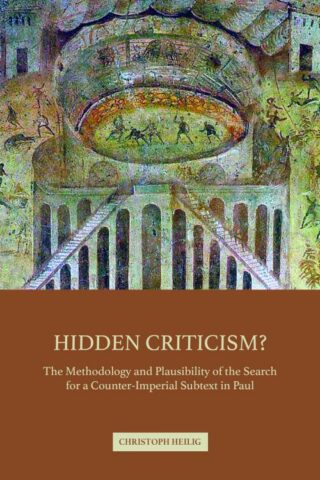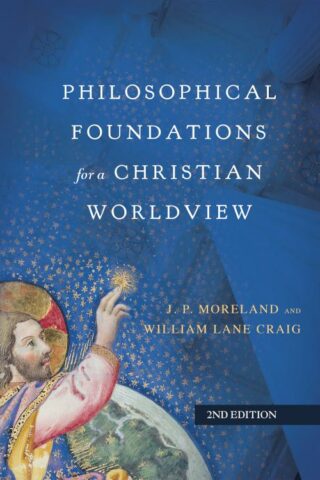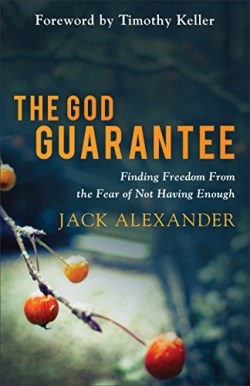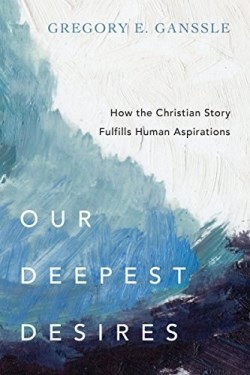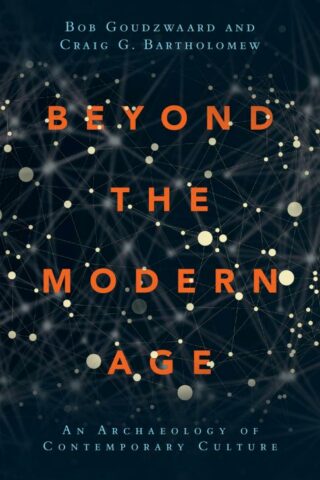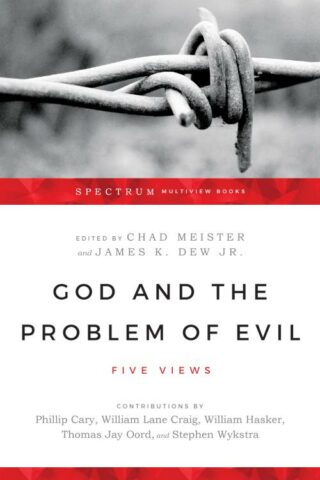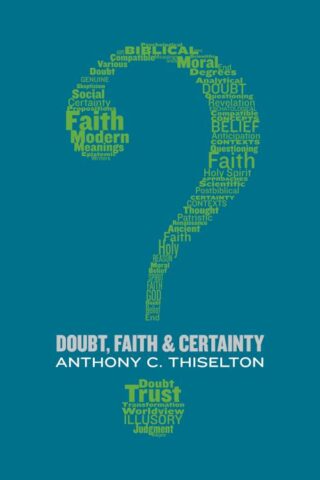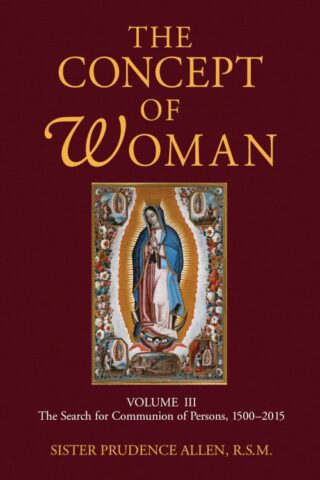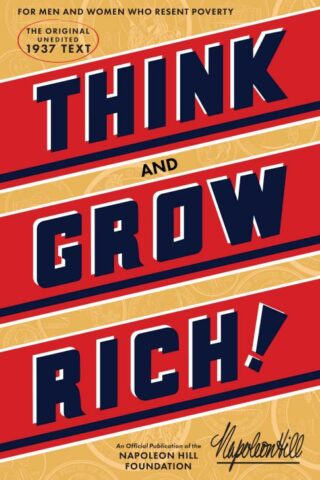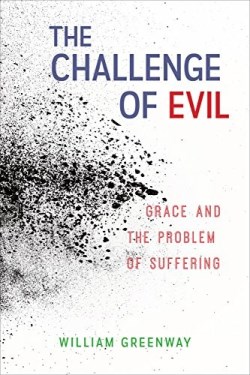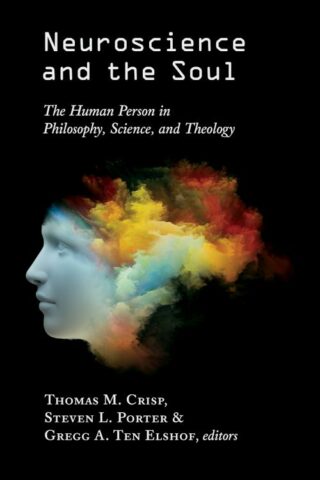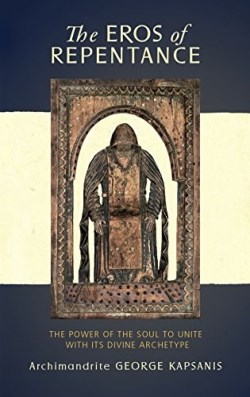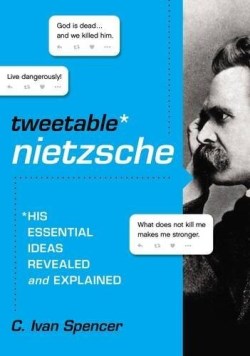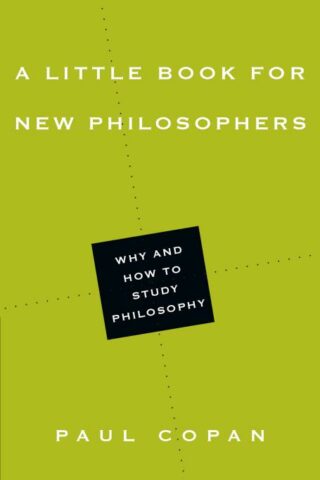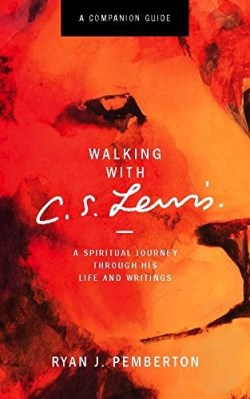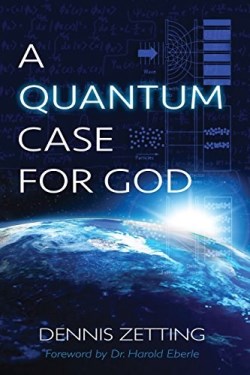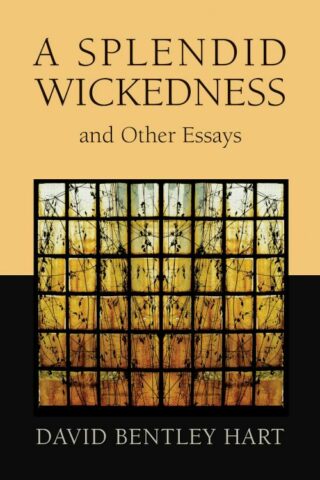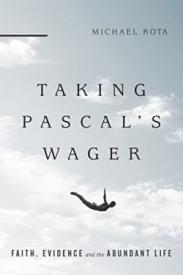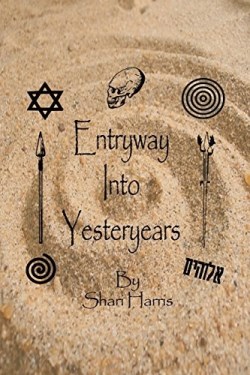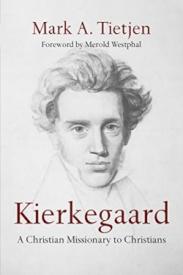Philosophy
Showing 1–50 of 340 results
-
What Is Reality
$30.00Add to cartWhat is real? How do we determine what the fundamental structures of reality are?
In this Questions in Christian Philosophy volume, philosopher Ross Inman offers an introduction to metaphysics. He introduces us to the tradition of metaphysics in Western philosophy, what it means to do metaphysics as a Christian, and considers timeless and universal inquiries into the central topics of metaphysics: identity, necessity and possibility, properties, universals, substances, and parts and wholes.
With this academic but accessible primer, readers will be introduced to the key topics explored in contemporary metaphysics.
The Questions in Christian Philosophy Series features introductory textbooks that offer students a Christian perspective on the various branches of philosophy, enabling them as they seek to understand all facets of life including existence, knowledge, ethics, art, and more.
-
Before Genesis : The Unauthorized History Of Tohu, Bohu, And The Chaos Drag
$21.95Add to cartBy far, the leading interpretation of today’s Church regarding the age of this planet, Earth, takes us back to approximately 4004 BC: the year believed to be Adam’s creation.
However, just as Galileo challenged the Church to accept that Earth circles the sun (not the other way around), it is far beyond time for traditional interpretations regarding our planet’s earliest ages-and what occurred between God and Lucifer during those eras-to be updated in light of what we know today. Once this is done, the evidence overwhelmingly stacks in favor of a harmony between science and theology.
Dr. Thomas Horn and his research assistant, Donna Howell, have waded through thousands of scholarly journals, books, articles, videos, and other media to present an astounding work like none other in this field of study that brings a fresh, modern perspective to contemporary sciences, the age-old question of what God’s first enemy did to Earth in the days it was “without form, and void” (Genesis 1:2), and what may have really happened in the days of Adam.
In Before Genesis, you will learn:
– The basics of the debate raging between the “Old Earth” and “Young Earth” Creationist groups and the often-overlooked answers to these issues straight from the Word of God;
– How ancient archeological sites such as Gobekli Tepe, Puerta de Hayu Marca (aka, “the Doorway of the Serpent”), Tiahuanaco, Baalbek, Catalhoyuk, and Mehgarh-alongside bizarre, out-of-place-artifact (OOPArt) findings-point to an intelligent race of beings on Earth alive before the time of Adam and under Lucifer’s fallen influence;
– What Earth was like during the “without form, and void” era of Genesis 1:2, who the key players were at that time, and what they were up to;
– Lucifer’s biblically recognized role as Earth’s “serpentine king”; what the biblical prophets said about this fallen “cherub that covereth”; who the perpetrator in Eden really was; and the origin of the “great lizards” we’ve come to know as dinosaurs;
– And, finally, for the first time: the conclusion to the events of Genesis that shockingly merges all contributing voices (Young and Old Creationist groups, as well as science) into one balanced and agreeable climax.
-
Christian Philosophy As A Way Of Life
$23.99Add to cartPhilosophy is often seen as anything but practically relevant to everyday life. In this brief, accessible introduction, Ross Inman explores four hidden assumptions that lurk behind questions involving philosophy’s relevance. He shows that philosophy is one of most practical subjects of study, for it satisfies our deep human need to make sense of it all.
This book recovers a more classical vision of Christian philosophy as an entire way of life. Inman shows that wonder is the distinctively human posture that drives and sustains the examined life and makes a compelling case that philosophy is valuable, practical, and significant for every aspect of Christian life and ministry. Living philosophically as a Christian enables us to be properly attuned to what is true and good in Christ and to orient our lives to the highest goals worth pursuing.
This is an ideal introductory book for students of philosophy, Christian thought, and worldview studies. It will also work well in classical school, high school, and homeschool contexts.
-
More Than Things
$48.99Add to cartWe live in a culture of commodification.
People are too often defined by what they do or own; they’re treated as means to an end or cogs in a machine. What goes missing is a deep sense of personhood–the belief that all humans are unique subjects with inherent worth and the right to self-determination in authentic communion with others.
In a world dominated by things, Paul Louis Metzger argues, we must work hard to account for one another’s personhood. We need to cultivate relational structures that honor every human’s dignity in vital interpersonal community. The theological and philosophical framework known as personalism can help guide us toward such a culture. Drawing from a wide range of thought leaders, including Martin Luther King Jr. and Pope John Paul II, Metzger presents a personalist moral vision founded on the Christian ideals of faith, hope, and love. He demonstrates how this moral compass can help us navigate a pluralistic world by applying it to a variety of pressing ethical issues, including abortion, genetic engineering, immigration, drone warfare, and more.
Ultimately human personhood begins with the personal, triune God, who invites us to live more fully as human beings. When we refuse to reduce our fellow humans–and ourselves–to mere abstractions or objects, we follow the example of Jesus in honoring the value of every person and of creaturely life as a whole.
-
Navigating Postmodern Theology
$110.00Add to cartNavigating Postmodern Theology: Insights from Jean-Luc Marion and Gianni Vattimo’s Philosophy provides an introduction to these two authors in relation to theology and metaphysics. This book invites the reader to consider new ways of thinking about theology in a postmetaphysical way, grounded in Marion’s phenomenology and Vattimo’s philosophy.
-
Who Are You Really
$30.99Add to cartWhat does it mean to be human? What is a person? Where did we come from?
Many answers have been offered throughout history in response to these perennial questions, including those from biological, anthropological, sociological, political, and theological approaches. And yet the questions remain.
Philosopher Joshua Rasmussen offers his own step-by-step examination into the fundamental nature and ultimate origin of persons. Using accessible language and clear logic, he argues that the answer to the question of what it means to be a person sheds light not only on our own nature but also on the existence of the one who gave us life.
-
Think And Grow Rich Guided Journal
$27.95Add to cartA GUIDED JOURNAL FOR ESTABLISHING EFFECTIVE MENTAL HABITS
Napoleon Hill’s book Think and Grow Rich has sold more than 80 million copies since it was published in 1937. His principles and insights have been tested and proven successful by millions of people worldwide. With this companion journal, you will discover a new way to implement the 17 success fundamentals that form Hill’s philosophy of personal achievement.
Each success principle is deconstructed into its component attributes so that you can focus on building one new habit each week. Action prompts, journaling activities, worksheets, and bonus resources will enable both new and longtime practitioners of Hill’s Science of Personal Achievement to attain heightened levels of self-mastery and accomplish their biggest goals.
Contents include:
*Journaling prompts for cultivating self-awareness, faith, and purpose
*Guidance for turning fear and failure into stepping-stones to success
*Activities for strengthening personal initiative, decisiveness, and accurate thinking
*Worksheets for enhancing concentration, imagination, and a positive mindset
*Templates for budgeting time and moneyWith this powerful, practical new format, anyone can apply the 17 principles of individual achievement in their own life and enjoy the success, happiness, and peace of mind that result when you Think and Grow Rich!
-
Think Better : Unlocking The Power Of Reason
$21.99Add to cartIn a world dominated by half-truths, illogic, and intellectual laziness, Think Better helps readers understand what reason is and how to use it well.Reason is a powerful tool not only for finding our way in an increasingly complex world but also for growing intellectually and emotionally. This short, accessible volume unlocks the dynamics of human reason, helping readers to think critically and to use reason confidently to solve problems. It enables readers to think more clearly and precisely about the world and tackles a number of profound philosophical questions without getting bogged down with jargon. Topics include knowledge, identity, leadership, creativity, and empathy.Written in an accessible style that integrates philosophy, illustrations, personal anecdotes, and statistical data, this book is well suited for use in undergraduate, classical school, and home school contexts. It is an invaluable guide for anyone interested in gaining better reasoning skills and a more rational approach to life.
-
Dear Napoleon : The Living Legacy Of Napoleon Hill And Think And Grow Rich
$29.99Add to cartDiscover the success secrets of individuals who have transformed their lives by internalizing and applying Napoleon Hill’s achievement philosophy.
Have you ever read a book by an author and it immediately changed you-your outlook on life, your relationships, your personal initiative, and your ability to withstand adversity? That is the common experience of those who have read the books of Napoleon Hill, especially his seminal Think and Grow Rich. This book collects the stories of real people whose lives have been altered by the work and wisdom of Napoleon Hill. With very few exceptions, none of the people included in this book ever met Hill directly, but they entered into a timeless mentorship or mastermind relationship with him through his many publications.
When you read this book, you will gain insight into how real people translate Hill’s philosophy of success into actions that forever alter the course of their lives. From multi-millionaires to teachers, counselors to humanitarians, the individuals who share Hill’s impact on their lives prove that Hill’s success system is more than a theory; it is a powerful program of achievement with enduring real-world application. Assembled by synthesizing the collective knowledge of hundreds of the most prosperous people of his era-including Thomas Edison, Henry Ford, and many others-Hill’s Science of Success provides practical steps for building financial, mental, and spiritual wealth. Similarly, the people who submitted “Dear Napoleon” letters for this book do not express their theoretical understanding of Hill’s principles; rather, they candidly share their real-life experiences with the power of Napoleon Hill’s philosophy of success. Take a journey into the trials and celebrations, failures and successes, of the individuals featured in this book, and acquire a clear sense of how you can apply Hill’s success concepts to great effect.
-
From Plato To Christ
$32.99Add to cartWhat does Plato have to do with the Christian faith?
Quite a bit, it turns out. In ways that might surprise us, Christians throughout the history of the church and even today have inherited aspects of the ancient Greek philosophy of Plato, who was both Socrates’s student and Aristotle’s teacher. To help us understand the influence of Platonic thought on the Christian faith, Louis Markos offers careful readings of some of Plato’s best-known texts and then traces the ways that his work shaped the faith of some of Christianity’s most beloved theologians, including Gregory of Nyssa, Augustine, Dante, and C. S. Lewis. With Markos’s guidance, readers can ascend to a true understanding of Plato’s influence on the faith.
-
Think And Grow Rich For The Modern Reader
$12.95Add to cartThis book provides a synopsis of the original 1937 text of Hill’s masterpiece, Think and Grow Rich. It extracts the key principles, instructions, and examples so that the modern professional, regardless of how busy he or she is, can benefit from the timeless wisdom found in Hill’s book.
To receive the greatest possible benefit from its wisdom, read no more than one chapter per day, allowing the space and time to fully digest its insights and to enable your imaginative faculties to act on the thought impulses generated thereby. You will also undoubtedly find your progress magnified by working through this content in the setting of a book club or study group, wherein the mastermind principle can be applied to reach higher-level orders of thinking. Regardless of your approach, when you commit yourself to practicing the steps outlined in this book, you will surely open yourself up to great personal growth and momentum toward achieving your dreams.
“Anything the mind can conceive and believe, it can achieve.”
Within this one line is distilled a success formula so simple that anyone can apply it–and yet so demanding that only a minority of the population ever fully lives it out. Upon it was built a success philosophy that explains how human desires can be translated into material reality, a framework that rests upon the power of thoughts to seek expression in physical form. Through this singular concept, the world’s wealthiest and most successful individuals–rich in money, relationships, power, peace of mind, and social standing–have built and maintained their prosperity. It is the foundational principle of Napoleon Hill’s Science of Success program, an achievement philosophy that effectively helped end the Great Depression and that has since made more millionaires, cultural icons, and thought leaders than any other.
Hill was born in 1883 in a one-room cabin on the Pound River in Wise County, Virginia. He began his writing career at age thirteen as a mountain reporter for small-town newspapers. In 1908, as a young special investigator for a nationally known business magazine, he was sent to interview the great steel magnate Andrew Carnegie. During that interview, Carnegie shared the secrets that had enabled him to acquire hundreds of millions of dollars–a magic law of the human mind, a little-known psychological principle that was amazing in its power.
Believing that this magic formula should be shared with those who did not have the time or
-
How Do We Reason
$26.99Add to cartHow do we think? What does a faithful use of logic look like?
Without even pausing to think about it, we exercise our capacity for rational thought. But how exactly does logic work? What makes some arguments valid and others not? In this Questions in Christian Philosophy volume, philosopher Forrest Baird offers an introduction to logic. He considers the basic building blocks of human reason, including types of arguments, fallacies, syllogisms, symbols, and proofs, all of which are demonstrated with exercises for students throughout. In addition, he reflects on the relationship between the use of reason and the Christian faith. With this academic but accessible primer, readers will be introduced to the basics of logic–and encouraged to reason better.
-
Philosophy Made Slightly Less Difficult Second Edition
$26.99Add to cartPhilosophy is for everyone. We think philosophically whenever we ask life’s big questions:
*What is real?
*How do we know what we know?
*What is the right thing to do?
*What does it mean to be human?
*How should we view science and its claims?
*Why should we believe that God exists?Philosophy is thinking critically about questions that matter. But many people find philosophy intimidating, so they never discover how invaluable it can be in engaging ideas, culture, and even their faith. Garrett DeWeese and J. P. Moreland understand these challenges, and in this book they apply their decades of teaching experience to help to make philosophy a little less difficult. Using straightforward language with plenty of everyday examples, they explain the basics needed to understand philosophical concepts–including logic, metaphysics, epistemology, ethics, philosophical anthropology, and philosophy of science. This second edition includes new chapters on aesthetics and philosophy of religion, as well as updated content on some current issues in philosophy. Ultimately, DeWeese and Moreland argue, developing a philosophically informed worldview is absolutely critical for Christians and for the future of the church. Students, pastors, campus workers, and ordinary Christians will all benefit from this user-friendly guide.
-
How Do We Know
$24.99Add to cartWhat does it mean to know something? Epistemology, the study of knowledge, can often seem like a daunting subject. And yet few topics are more basic to human life. In this primer on epistemology, now in a second edition, James Dew and Mark Foreman provide an accessible entry into one of the most important disciplines within contemporary philosophy.
What does it mean to know something? Can we have confidence in our knowledge? Epistemology, the study of knowledge, can often seem like a daunting subject. And yet few topics are more basic to human life. We are inquisitive creatures by nature, and the unending quest for truth leads us to raise difficult questions about the quest itself. What are the conditions, sources, and limits of our knowledge? Do our beliefs need to be rationally justified? Can we have certainty? In this primer on epistemology, James Dew and Mark Foreman guide readers through this discipline in philosophy. This second edition has been expanded with new material and now serves as the first volume in IVP’s Questions in Christian Philosophy series. By asking basic questions and using clear, jargon-free language, they provide an entry into one of the most important issues in contemporary philosophy.
-
Myth And Meaning In Jordan Peterson
$18.99Add to cartPopular philosopher Jordan Peterson has captured the imagination of Western world.
For some, Peterson represents all that is wrong with patriarchal culture; for others, he is the Canadian academic prophet who has come to save civilization from dizzying confusion. Regardless of how one feels about him, his influence in North America–and beyond–is difficult to deny.
While the “Peterson phenomenon” has motivated numerous articles and responses, much of what has been written is either excessively fawning or overly critical. Little has been produced that explores Peterson’s thought–especially his immensely popular 12 Rules for Life–within the context of his overall context and scholarly output. How is one to understand the ascendency of Jordan Peterson and why he’s become so popular? Does his earlier Maps of Meaning shed light on how one might understand his worldwide bestseller, 12 Rules for Life?In Myth and Meaning in Jordan Peterson, scholars across various disciplines explore various aspects of Jordan Peterson’s thought from a Christian perspective. Both critical and charitable, sober-minded and generous, this collection of ten essays is a key resource for those looking to faithfully engage with Jordan Peterson’s thought.
-
Human Gravity : An Engineer’s Analysis Of Society-Government Relations
$13.99Add to cartHumanity lives inside 4 unyielding constraints, the speed of light, conservation of mass-energy, inefficiency in conversion of heat to work, and the law of demand. Society forms to deal with constraint. Government and religion set boundaries for society to deal with modeling and manipulating constraint.
A societal dimension, moral consequence, and a government dimension, fairness, can be developed from mass-energy conservation equations for Society and its Economy. A model is proposed to relate these dimensions developing the Societal Operating Line (SOL) and definition of Productivity.
The stability of a society can be determined by the forces applied to the SOL. A stable society will balance the forces of productivity and order versus the force of adversity. A special case of the forces acting on the SOL leads to the definition of a right, the fundamental building block of a Free Society.
Improving fairness by government taking productivity from society is the basis for the Managed Society. In order to make society fairer, government takes more productivity and reduces the free exercise of rights to the point of demanding complete conformity.
Government’s role in a Free Society can be modeled by comparing the economic function of society with a common engineering structure-the boiler. This role is likened to keeping the boiler water clean by removing contamination through “blowdown”. In a Managed Society, government manipulates “blowdown” to increase its power and influence.
Applying these engineering models helps us to understand the material and energy balances of our societal-government relationship. A Free Society is shown to prosper because of unbound spiritual energy transfer while a Managed Society is shown to be limited by the finite distribution of things.
-
Thiselton On Hermeneutics
$98.99Add to cartAnthony Thiselton’s masterful work in the field of hermeneutics has impacted countless students and scholars over the past several decades. Especially influential was his Two Horizons (1980), a call to take seriously the contexts of both the reader and the text. Thiselton’s work continues to carry much weight, yet there has been no single place to go to access a helpful array of his writings — until now.
Thiselton on Hermeneutics provides select expositions and critical discussions of hermeneutics as a multidisciplinary area. Biblical interpretation, philosophical hermeneutics, literary theory, postmodernism, and Christian theology genuinely interact in these forty-two studies to form a coherent whole. Thiselton’s unique interactive and multidisciplinary approach shines through the volume. Ten of these essays — almost a quarter of the collection — are new (never published before) or quite recent.
Theologians, biblical scholars, philosophers, and many other academics will appreciate this distillation of the pioneering perspectives and creative insights of Anthony C. Thiselton.
-
Cyberdimension : A Political Theology Of Cyberspace And Cybersecurity
$37.00Add to cartIn 2013, Edward Snowden released a trove of documents revealing the extent of government electronic surveillance. Since then, we have been inundated with reports of vicious malware attacks, election hacking, data breaches, potential cyberwars, fights over Net Neutrality, and fake internet news. Where once discussion of cyberspace was full of hope of incredible potential benefits for humanity and global connection, it has become the domain of fear, anxiety, conflict, and authoritarian impulses. As the cloud of the Net darkens into a storm, are there insights from Christian theology about our online existence? Is the divine present in this phenomenon known as cyberspace? Is it a realm of fear or a realm of hope?
In The Cyberdimension, Eric Trozzo engages these questions, seeking not only a theological means of speaking about cyberspace in its ambiguity, but also how the spiritual dimension of life provokes resistance to the reduction of life to what can be calculated. Rather than focusing on the content available online, he looks to the structure of cyberspace itself to find a chastened yet still expectant vision of divinity amidst the political, economic, and social forces at play in the cyber realm.
-
Philosophy : A Christian Introduction
$29.00Add to cartTwo experienced educators offer an up-to-date introduction to philosophy from a Christian perspective that covers the four major areas of philosophical thought: epistemology, metaphysics, philosophy of religion, and ethics. Written from an analytic perspective, the book introduces key concepts and issues within the main areas of philosophical inquiry in a comprehensive yet accessible way, inviting readers on a quest for goodness, truth, and beauty that ultimately points to Jesus as the source of all.
-
Kierkegaards Theological Sociology
$22.00Add to cartKierkegaard developed a distinctive type of sociology in the 1840s–a theological sociology. Looking at society through the lens of analysis categories such as worship, sin, and faith, Kierkegaard developed a profoundly insightful way of understanding how, for example, the modern mass media works. He gets right inside the urban world of Golden Age Denmark, and its religion, and analyses “”the present age”” of consumption, comfort, competition, distraction, and image-construction with astonishing depth. To Kierkegaard worship centers all individuals and all societies; hence his sociology is doxological. This book argues that we also live in the present age Kierkegaard described, and our way of life can be understood much better through Kierkegaard’s lens than through the methodologically materialist categories of classical sociology. As social theory itself has moved beyond classical sociology, the social sciences are increasingly open to post-methodologically-atheist approaches to understanding what it means to be human beings living in social contexts. The time is right to recover the theological resources of Christian faith in understanding the social world we live in. The time has come to pick up where Kierkegaard left off, and to start working towards a prophetic doxological sociology for our times.
-
Notes On Bergson And Descartes
$62.00Add to cartCharles Peguy (1873-1914) was a French religious poet, philosophical essayist, publisher, social activist, Dreyfusard, and Catholic convert. There has recently been a renewed recognition of Peguy in France as a thinker of unique significance, a reconsideration inspired in large part by Gilles Deleuze’s Difference et repetition, which ranked him with Nietzsche and Kierkegaard. In the English-speaking world, however, access to Peguy has been hindered by a scarcity of translations of his work. This first complete translation of one of his most important prose works, with accompanying interpretive introduction and notes, will introduce English-speaking readers to a new voice, which speaks in a powerful and original way to a modern West in a condition of cultural and spiritual crisis. The immediate circumstance of the writing of this last prose essay, unfinished at the time of Peguy’s early death, was the placing of Henri Bergson’s philosophical works on the Catholic Index, and Peguy’s undertaking to defend his former teacher from his critics, both Catholic and secular. But the subject of Bergson is also a springboard for the exploration of the perennial themes-philosophical, theological, and literary-most central to Peguy’s thought.
-
Love In The Void
$12.00Add to cartSimone Weil, the great mystic and philosopher for our age, shows where anyone can find God.
Why is it that Simone Weil, with her short, troubled life and confounding insights into faith and doubt, continues to speak to today’s spiritual seekers? Was it her social radicalism, which led her to renounce privilege? Her ambivalence toward institutional religion? Her combination of philosophical rigor with the ardor of a mystic?
Albert Camus called Simone Weil “the only great spirit of our time.” Andre Gide found her “the most truly spiritual writer of this century.” Her intense life and profound writings have influenced people as diverse as T. S. Eliot, Charles De Gaulle, Pope Paul VI, and Adrienne Rich.
The body of work she left–most of it published posthumously–is the fruit of an anguished but ultimately luminous spiritual journey.
After her untimely death at age thirty-four, Simone Weil quickly achieved legendary status among a whole generation of thinkers. Her radical idealism offered a corrective to consumer culture. But more importantly, she pointed the way, especially for those outside institutional religion, to encounter the love of God – in love to neighbor, love of beauty, and even in suffering.
-
Philosophy Of The Christian Religion
$50.00Add to cartEach field of study comes with its own set of questions; each period of time refines and redirects those questions. The Christian religion as we find it in the twenty-first century presents a unique set of problems to be solved and questions to be answered. In this introduction to the philosophy of the Christian religion, eminent philosopher and theologian Nancey Murphy applies the tools of philosophical analysis to a set of core yet contemporary religious questions: what does our historical moment mean for the possibility of knowing God? Is faith still possible? Does God intervene in human history? Is there such a thing as universal knowledge of God? Written with the needs of students encountering the philosophy of religion for the first time in mind, this book provides a comprehensive introduction to the fundamental questions inherent in Christian faith. Murphy also provides tools for how to answer those questions.
-
Social Philosophy Of Gillian Rose
$51.00Add to cartGillian Rose was one of the most important social philosophers of the twentieth century. This is the first book to present her social philosophy as a systematic whole. Based on new archive research and examining the full range of Rose’s sources, it explains her theory of modern society, her unique version of ideology critique, and her views on law and mutual recognition. Brower Latz relates Rose’s work to numerous debates in sociology and philosophy, such as the relation of theory to metatheory, emergence, and the relationship of sociology and philosophy. This book makes clear not only Rose’s difficult texts but the entire structure of her thought, making her complete social theory accessible for the first time.
-
Social Philosophy Of Gillian Rose
$31.00Add to cartGillian Rose was one of the most important social philosophers of the twentieth century. This is the first book to present her social philosophy as a systematic whole. Based on new archive research and examining the full range of Rose’s sources, it explains her theory of modern society, her unique version of ideology critique, and her views on law and mutual recognition. Brower Latz relates Rose’s work to numerous debates in sociology and philosophy, such as the relation of theory to metatheory, emergence, and the relationship of sociology and philosophy. This book makes clear not only Rose’s difficult texts but the entire structure of her thought, making her complete social theory accessible for the first time.
-
Animals Theology And The Incarnation
$120.00Add to cartHow does an understanding of the non-human lead us to a greater understanding of the incarnation? Are non-human animals morally relevant within Christian theology and ethics? Is there a human ethical responsibility towards non-human animals? In Animals, Theology and the Incarnation, Kris Hiuser argues that if we are called to represent both God to creation, and creation to God, then this has considerable bearing on understanding what it means to be human, as well as informing human action towards non-human creatures.
-
Reasoning From Faith
$35.00Add to cartIndiana University Press
Merold Westphal is considered to be one of the preeminent Continental philosophers of religion. His articulation of faith as the task of a lifetime has become a touchstone in contemporary debates concerning faith’s relationship to reason. As Justin Sands explores his philosophy, he illuminates how Westphal’s concept of faith reveals the pastoral, theological intent behind his thinking. Sands sees Westphal’s philosophy as a powerful articulation of Protestant theology, but one that is in ecumenical dialogue with questions concerning apologetics and faith’s relationship to ethics and responsibility, a more Catholic point of view. By bringing out these features in Westphal’s philosophy, Sands intends to find core philosophical methodologies as well as a passable bridge for philosophers to cross over into theological discourses.
-
Reasoning From Faith
$85.00Add to cartIndiana University Press
Merold Westphal is considered to be one of the preeminent Continental philosophers of religion. His articulation of faith as the task of a lifetime has become a touchstone in contemporary debates concerning faith’s relationship to reason. As Justin Sands explores his philosophy, he illuminates how Westphal’s concept of faith reveals the pastoral, theological intent behind his thinking. Sands sees Westphal’s philosophy as a powerful articulation of Protestant theology, but one that is in ecumenical dialogue with questions concerning apologetics and faith’s relationship to ethics and responsibility, a more Catholic point of view. By bringing out these features in Westphal’s philosophy, Sands intends to find core philosophical methodologies as well as a passable bridge for philosophers to cross over into theological discourses.
-
Approaching Philosophy Of Religion
$28.99Add to cartEncountering philosophy of religion for the first time, we are like explorers arriving on an uncharted coastline. There are inviting bays and beaches, but rocky reefs and pounding surf as well. And what tribes may inhabit the land is anyone’s guess.
But our cautious intrigue turns to confidence as Anthony Thiselton greets us as a native informant. Cheerfully imparting insider knowledge, mapping the major landmarks, and outlining the main figures and issues in its tribal debates, he teaches us the basics for gaining cultural fluency on these foreign shores.
Approaching Philosophy of Religion is divided into three parts:
Part I (Approaches) provides descriptions of the main entrance ramps to studying the subject, with lively case histories, working examples, and assessments of their lasting value.
Part II (Concepts and Issues) gives us brief introductions to the origins and development of ideas, and highlights their significance in the work of major thinkers.
Part III (Key Terms) supplies concise explanations of all the words and phrases that readers need to know in order to engage the subject.
For students and anyone else reading and engaging philosophy of religion for the first time, Approaching Philosophy of Religion is the essential companion.
-
Hidden Criticism : The Methodology And Plausibility Of The Search For A Cou
$39.00Add to cartPaul has been regarded as being uncritical of the Roman Empire for a long time, not least because of his apparent call to obey the state in Romans 13:1-7. However, recent scholarship has questioned this assumption by pointing to “hidden criticism” in the letters of the apostle. But how can we decide, in a methodologically sound way, whether such a counter-imperial message lies beneath the surface of the text? On the basis of insights from the philosophy of science, Christoph Heilig suggests several analytical steps for examining this paradigm. He concludes that the hypothesis that we can identify critical “echoes” of the Roman Empire in Paul’s letters needs to be modified if it is to be maintained. In particular, the hypothesis of Paul’s concern that any overt criticism would be dangerous and lead to subsequent persecution of himself or his congregations is dubious and does not sufficiently justify this interpretative approach. Nevertheless, Heilig concludes that the search for a counter-imperial subtext in Paul could turn out to be heuristically fruitful, so long as the limitations of the approach are heeded. Hence, a reevaluation of Pauline passages in light of Paul’s engagement with ideas from his Roman environment is encouraged.
-
Philosophical Foundations For A Christian Worldview (Expanded)
$70.99Add to cartPreface
Outline Of The Book
An Invitation To Christian PhilosophyPart I: Introduction
1 What Is Philosophy?
2 Argumentation And LogicPart II: Epistemology
3 Knowledge And Rationality
4 The Problem Of Skepticism
5 The Structure Of Justification
6 Theories Of Truth And Postmodernism
7 Religious EpistemologyPart III: Metaphysics
8 What Is Metaphysics?
9 General Ontology: Existence, Identity, And Reductionism
10 General Ontology: Two Categories?Property And Substance
11 The Mind-Body Problem Part IA: Consciousness And Property Dualism Or Mere-Property Dualism
12 The Mind-Body Problem Part IB: Alternatives To Property Dualism Or Mere-Property Dualism
13 The Mind-Body Problem Part IIA: Arguments Regarding And Versions Of Substance Dualism
14 The Mind-Body Problem Part IIB: The Main Physicalist Alternatives To Substance Dualism
15 Free Will And Determinism
16 Personal Identity And Life After DeathPart IV: Philosophy Of Science
17 Scientific Methodology
18 The Realism-Antirealism Debate
19 Philosophy And The Integration Of Science And Theology
20 Philosophy Of Time And SpacePart V: Ethics
21 Ethics, Morality, And Metaethics
22 Ethical Relativism And Absolutism
23 Normative Ethical Theories: Egoism And Utilitarianism
24 Normative Ethical Theories: Deontological And Virtue EthicsPart VI: Philosophy Of Religion And Philosophical Theology
25 The Existence Of God I
26 The Existence Of God II
27 The Coherence Of Theism I
28 The Coherence Of Theism II
29 The Problem Of Evil
30 Creation, Providence, And Miracle
31 Christian Doctrines I: The Trinity
32 Christian Doctrines II: The Incarnation
33 Christian Doctrines III: Atonement
34 Christian Doctrines IV: Christian ParticularismSuggestions For Further Reading
Name Index
Subject Index
Scripture IndexAdditional Info
Winner of a 2004 ECPA Gold Medallion Award! Winner of an Award of Excellence in the 2003 Chicago Book Clinic! What is real?What is truth? What can we know? What should we believe? What should we do and why? Is there a God? Can we know him? Do Christian doctrines make sense? Can we believe in God in the face of evil? These are fundamental questions that any thinking person wants answers to. These are questions that philosophy addresses. And the answers we give to these kinds of questions serve as the the foundation stones for consrtucting any kind of worldview. In Philosophical Foundations for a Christian Worldview J.P. Moreland and William Lane Craig offer a comprehensive introduction to philosophy from a Christian perspective. In their broad sweep they seek to introduce readers to the principal subdisciplines of philosophy, including epistemology, metaphysics, philosophy of science, ethics and philosophy of religion. They do so with characteristic clarity and incisiveness. Arguments are clearly outlined, and rival theories are presented with fairness and accuracy. Philosophy, they contend, aids Christians in the tasks of apologetics, polemics and systematic theology. It reflects our having been made in the image of God, helps us to extend biblical teaching into areas not expressly addressed in Scripture, facilitates the spiritual discipline of study, enhances the boldness and self-image of the Christian community, and is requisite to the essential task of integrating faith and learning. Here is a lively and thorough introduction to philosophy for all who want to know reality. -
Our Deepest Desires
$20.99Add to cartAcknowledgments
Introduction: Making Sense Of Our DesiresPart I: Persons
1. Persons And Happiness
2. People Matter Most
3. We Flourish In RelationshipsPart II: Goodness
4. Looking For Goodness
5. Goodness Is Primary
6. Goodness Is Good For UsPart III: Beauty
7. The Startling Presence Of Beauty
8. The Artist
9. Beauty Points The Way HomePart IV: Freedom
10. Personal Freedom
11. Freedom And Truth
12. Freedom And HopeEpilogue: Human Aspiration And The Christian Story
General Index
Scripture IndexAdditional Info
How does the Christian story compare to our shared experience as humans? Philosopher and apologist Greg Ganssle explores this question by considering Christianity in light of our widely-shared human aspirations such as our relationships, goodness, beauty, and freedom, showing that the Christian story explains and grounds these deeply-held values. -
Beyond The Modern Age
$35.99Add to cartThe modern age has produced global crises that modernity itself seems incapable of resolving-deregulated capitalism, consumerism, economic inequality, militarization, overworked laborers, environmental destruction, insufficient health care, and many other problems. The future of our world depends on moving beyond the modern age. Bob Goudzwaard and Craig G. Bartholomew have spent decades listening to their students and reflecting on modern thought and society. In Beyond the Modern Age they explore the complexities and challenges of our time. Modernity is not one thing but many, encompassing multiple worldviews that contain both the source of our problems and the potential resources for transcending our present situation. Through an archaeological investigation and critique of four modern worldviews, Goudzwaard and Bartholomew demonstrate the need for new ways of thinking and living that overcome the relentless drive of progress. They find guidance in the work of Rene Girard on desire, Abraham Kuyper on pluralism and poverty, and Philip Rieff on culture and religion. These and other thinkers point the way towards a solution to the crises that confront the world today. Beyond the Modern Age is a work of grand vision and profound insight. Goudzwaard and Bartholomew do not settle for simplistic analysis and easy answers but press for nuanced engagement with the ideologies and worldviews that shape the modern age. The problems we face today require an honest, interdisciplinary, and global dialogue. Beyond the Modern Age invites us to the table and points the way forward.
-
God And The Problem Of Evil
$28.99Add to cartIntroduction Chad V. Meister And James K. Dew Jr.
Part 1: Perspectives On The Problem Of Evil
1. The Classic View Phillip Cary
2. The Molinist View William Lane Craig
3. The Open Theist View William Hasker
4. The Essential Kenosis View Thomas Jay Oord
5. The Skeptical Theist View: A Journey Stephen WykstraPart 2: Responses
6. Response To Other Contributors Phillip Cary
7. Response To Other Contributors William Lane Craig
8. Response To Other Contributors William Hasker
9. Response To Other Contributors Thomas Jay Oord
10. Response To Other Contributors Stephen WykstraAuthor Index
Subject IndexAdditional Info
Evil abounds. And so do the attempts to understand God in the face of such evil. The problem of evil is a constant challenge to faith in God. How can we believe in a loving and powerful God given the existence of so much suffering in the world? Philosophers and theologians have addressed this problem countless times over the centuries. New explanations have been proposed in recent decades drawing on resources in Scripture, theology, philosophy, and science. God and the Problem of Evil stages a dialogue between the five key positions in the current debate: Phillip Cary: A Classic ViewWilliam Lane Craig: A Molinist ViewWilliam Hasker: An Open Theist ViewThomas J. Oord: An Essential Kenosis ViewStephen Wykstra: A Skeptical Theism View According to the classic position, associated especially with the Augustinian tradition, God permits evil and suffering as part of the grand narrative of divine providence to bring about the redemption of creation. Molinism modifies the classic view by adding God’s middle knowledge to the picture, in which God has knowledge of what creatures would do in all possible worlds. Open theism rejects the determinism of the classic view in favor of an account of God as a risk-taker who does not know for sure what the future holds. Essential kenosis goes further in providing a comprehensive theodicy by arguing that God cannot control creatures and thus cannot unilaterally prevent evil. Skeptical theism rejects the attempt to provide a theodicy and instead argues that, if God exists, we should not expect to understand God’s purposes. Edited, with an introduction, by Chad Meister and James K. Dew Jr., God and the Problem of Evil hosts a generous and informative conversation on one of the most pressing issues in the Christian life. -
Doubt Faith And Certainty
$23.99Add to cartProduct Close-up
BROWSE
All Products
Keywords: 9780802873538 (1)
ADVANCED SEARCH LINKS
Advanced Search
Commentary Search
Bible Finder
Homeschool Finder
Song Search
Bible Study SearchOthers Also Purchased (15)
ADD TO CART
ADD TO CART
DESCRIPTIONAVAILABILITYPRICEQUANTITYINCLUDE
Jerusalem in the Time of Jesus (CBD Exclusive!)
Jerusalem in the Time of Jesus (CBD Exclusive!) In Stock
$9.99
Retail: $34.990
Know Your Bible: All 66 Books Explained and Applied
Know Your Bible: All 66 Books Explained and Applied In Stock
$1.19
Retail: $1.490
Holman Illustrated Bible Handbook
Holman Illustrated Bible Handbook In Stock
$5.99
Retail: $17.990
Halley’s Bible Handbook
Halley’s Bible Handbook In Stock
$7.49
Retail: $15.990
Jesus Among Other Gods
Jesus Among Other Gods In Stock
$7.99
Retail: $15.990
VIEW ALL 15 PRODUCTS ADD TO CART
ADD TO CART
Product InformationFormat: Paperback
Number of Pages: 160
Vendor: Wm. B. Eerdmans Publishing Co.
Publication Date: 2017
Dimensions: 9.00 X 6.00 (inches)
ISBN: 0802873537
ISBN-13: 9780802873538
Availability: This product will be released on 03/15/17
Email me when this product is available.
Other Customers Also PurchasedThe Psalms: Structure, Content, and Message
The Psalms: Structure, Content, and Message
Claus Westermann
$19.00
Calvin and Classical Philosophy
Calvin and Classical Philosophy
Charles Partee
$27.00 $30.00 Save 10%
Theology after Wittgenstein
Theology after Wittgenstein
Fergus Kerr
$26.99
The Richness of Augustine: His Contextual & Pastoral Theology
The Richness of Augustine: His Contextual & Pastoral Theology
Mark Ellingsen
$18.99 $30.00 Save 37%
Vincent of Lerins and the Development of Christian Doctrine
Vincent of Lerins and the Development of Christian Doctrine
Thomas G. Guarino
$17.89 $27.00 Save 34%
Related ProductsWhy I Am a Christian
Why I Am a Christian
John Stott
$6.49 $13.00 Save 50%
5 Stars Out Of 5
The Cross of Christ: 20th Anniversary Edition, with Study Guide
The Cross of Christ: 20th Anniversary Edition, with Study Guide
John Stott
$15.99 $27.00 Save 41%
5 Stars Out Of 5
Understanding the Bible
Understanding the Bible
John Stott
$10.99 $14.99 Save 27%
Christ: Basic Christianity, Christian Basics Bible Studies
Christ: Basic Christianity, Christian Basics Bible Studies
John Stott
$7.19 $9.00 Save 20%
The Grace of Giving: 10 Principles of Christian Giving
The Grace of Giving: 10 P -
Concept Of Woman Volume 3
$58.99Add to cartThis pioneering study by Sister Prudence Allen traces the concept of woman in relation to man in Western thought from ancient times to the present. In her third and final volume Allen covers the years 1500-2015, continuing her chronological approach to individual authors from the first two volumes and also offering systematic arguments to defend some philosophical positions over against others.
Building on her work from Volumes I and II, Allen draws on four “communities of discourse” – Academic, Humanist, Religious, and Satirical – and she traces several recurring strands of sex and gender identity from the Renaissance to the present. Now complete, Allen’s magisterial study will be a valuable resource for scholars and students in the fields of women’s studies, philosophy, history, theology, literary studies, and political science.
-
Think And Grow Rich
$17.95Add to cartThink and Grow Rich – Over 80 Million Copies Sold
This edition of Napoleon Hill’s Classic Think and Grow Rich is a reproduction of Napoleon Hill’s personal copy of the first edition, the ONLY original version recommended by The Napoleon Hill Foundation, originally printed in March of 1937.
The most famous of all teachers of success spent a fortune and the better part of a lifetime of effort to produce the Law of Success philosophy that forms the basis of his books and that is so powerfully summarized and explained for the general public in this book.
In Think and Grow Rich, Hill draws on stories of Andrew Carnegie, Thomas Edison, Henry Ford, and other millionaires of his generation to illustrate his principles. This book will teach you the secrets that could bring you a fortune. It will show you not only what to do but how to do it. Once you learn and apply the simple, basic techniques revealed here, you will have mastered the secret of true and lasting success.
Money and material things are essential for freedom of body and mind, but there are some who will feel that the greatest of all riches can be evaluated only in terms of lasting friendships, loving family relationships, understanding between business associates, and introspective harmony which brings one true peace of mind! All who read, understand, and apply this philosophy will be better prepared to attract and enjoy these spiritual values.
BE PREPARED! When you expose yourself to the influence of this philosophy, you may experience a CHANGED LIFE which can help you negotiate your way through life with harmony and understanding and prepare you for the accumulation of abundant material riches.
-
Challenge Of Evil
$30.00Add to cartBelief in God in the face of suffering is one of the most intractable problems of Christian theology. Many respond to the spiritual challenge of evil by ignoring it, blaming God, or insisting on the inherent meaninglessness of life. In this book, William Greenway contends that we don’t have to deny our moral selves by either ignoring evil or abandoning our moral sensibilities toward it. We can open our eyes fully to suffering and evil, and our own complicity in them. We can do so because it is only in this full acceptance of the world’s guilt and our own that we make ourselves fully open to agape, to being seized by love of others and God. Inspired by the Jewish philosopher Emmanuel Levinas and the Christian novelist Fyodor Dostoyevsky, The Challenge of Evil lovingly explains how we can look squarely at the overwhelming suffering in the world and still, by grace, have faith in a good and loving God.
-
Neuroscience And The Soul
$41.99Add to cartAn interdisciplinary look at arguments both for and against traditional belief in the soul
It is a widely held belief that human beings are both body and soul, that our immaterial soul is distinct from our material body. But that traditional idea has been seriously questioned by much recent research in the brain sciences.
In Neuroscience and the Soul fourteen distinguished scholars grapple with current debates about the existence and nature of the soul. Featuring a dialogical format, the book presents state-of-the-art work by leading philosophers and theologians – some arguing for the existence of the soul, others arguing against – and then puts those scholars into conversation with critics of their views. Bringing philosophy, theology, and neuroscience together in this way brings to light new nuances and significantly advances the ongoing debate over body and soul.
-
Eros Of Repentance
$9.95Add to cartUplifting and inspiring, this book has the power to lead us to a real change of heart and mind – the original meaning of repentance, and re-orient us to the true purpose of human life: theosis, union with God. This edition has been revised by the monastery on Mt Athos and is the definitive translation into English of the Abbot’s original talks.
-
Tweetable Nietzsche : His Essential Ideas Revealed And Explained
$16.99Add to cartFriedrich Nietzsche radically confronted Western culture, morality, and social mores, until his death in 1900. Occupying a first-rank position as a thinker, his thought later inspired numerous movements that weave the tapestries of contemporary culture: existentialism, theology, nihilistic culture, Nazism, twentieth century film and art, atheism, ethical egoism, deconstruction, the hermeneutics of suspicion, and the postmodern age.
Nietzsche’s incalculable sway on our culture persists to this day. Even his acerbic criticism of Christianity has affected the religion. But many people remain unaware of the pervasive attitudes Nietzsche disseminated, attitudes they echo. His stark prophecy that “God is dead, and we killed him” thrives in this accelerating secular age where postmodernists lionized him as a prophetic voice of a new era.
The Tweetable Nietzsche introduces and analyzes the worldview of Friedrich Nietzsche. Nietzsche’s tweets, 140 characters or less, provide readers a distilled essence of every major aspect of his worldview. Each tweet illustrates some aspect of his worldview contributing toward a full-orbed understanding of Nietzsche’s thought.
-
Little Book For New Philosophers
$14.99Add to cartPaul Copan introduces the nature and challenge of philosophy to beginning students. What is the relevance of philosophy to Christian faith and theology? What kinds of questions do philosophers pursue? And what intellectual virtues are required and gained in the pursuit of philosophy for the cause of Christ?
-
Walking With C S Lewis A Companion Guide
$19.99Add to cartWalking with C. S. Lewis is an ideal guide for longtime Lewis fans and new readers alike to dive into the man, his works, and his impact alongside well-respected voices in the Lewis community. Each segment in this ten-segment video series focuses on a different book or topic in Lewis’ life, showing for each how the writings flowed out of Lewis’ life and thought. Professor Tony Ash also tells the story of his discovery of Lewis when he was a young man in transition and how Lewis has continued to shape his life and view of God in subsequent years. The richly detailed companion guide provides helpful summary of Lewis’ works and helps readers see the deeper connections between the books and the man who wrote them. In the video series, viewers will follow Professor Ash, seasoned biblical studies scholar and longtime Lewis aficionado, with many segments filmed on-location in Lewis’ Oxford. In the companion guide, Ryan Pemberton–former president of the Oxford University C. S. Lewis Society and author of Called: My Journey to C. S. Lewis’s House and Back Again provides an eloquent but accessible framework to better understand Lewis himself as well as a helpful supplementary discussion on many of his best-known works. The videos and companion guide are ideal for individual or group study, alongside one of his books or as a standalone inquiry into the man who has shaped the thought and faith of so many readers.
-
Quantum Case For God
$19.95Add to cartQuantum Creation LLC Title
Quantum physics says that God can exist! With quantum science explained in simple English, here is the unequivocal connections between science and God people have been wanting for hundreds of years. Whether atheist, agnostic, or believer in God, be prepared to be awestruck by how science supports the possibility that God exists.
-
Splendid Wickedness And Other Essays
$38.99Add to cartIncisive essays from a master wordsmith
Why has Don Juan become so passe of late? What’s the trouble with Ayn Rand? How did the Doge of Venice come to venerate the counterfeit remains of Siddhartha Gautama? Why does the Bentley family’s collection of ancestral relics include a bronzed human thumb? And what, exactly, is the story behind Great Uncle Aloysius, who was born a Quaker but died a pagan?
This collection of occasional essays brings us David Bentley Hart at his finest: startlingly clear and deliciously abstruse, coolly wise and burningly witty, fresh and timeless, mystical and concrete – often all at once. Hart’s incisive blend of philosophy, moral theology, and cultural criticism, together with his flair for both the well-told story and the well-turned phrase, is sure to delight.
-
Taking Pascals Wager
$30.99Add to cart14 Chapters
Additional Info
Since we can’t know with absolute certainty that God exists, each of us in a sense makes a bet. If we believe in God and are right, the benefits include eternal life. If we are wrong, the downside is limited. On the other hand, we might not believe in God. If we are right, then we will have lived in line with reality. If we are wrong, however, the consequences could be eternally disastrous. This was the challenge posed by the French philosopher Blaise Pascal over three hundred years ago. But Michael Rota contends that Pascal’s argument is still compelling today. Since there is much to gain (for ourselves as well as for others) and relatively little to lose, the wise decision is to seek a relationship with God and live a Christian life. Rota considers Pascal’s wager and the roles of uncertainty, evidence and faith in making a commitment to God. By engaging with themes such as decision theory, the fine-tuning of the universe, divine hiddenness, the problem of evil, the historicity of the resurrection and the nature of miracles, he probes the many dynamics at work in embracing the Christian faith. In addition, Rota takes a turn not found in many books of philosophy. He looks at the actual effects of such a commitment in three recent, vivid, gripping examples?Dietrich Bonhoeffer, Jean Vanier and Immaculee Ilibagiza. Like Pascal, Rota leaves us with a question: What wager will we make? -
Entryway Into Yesteryears
$15.00Add to cart: “Entryway Into Yesteryears” is the history of where we came from. A soul woke inside Shari Harris’s mind and told her the words of God, peace, and love and understanding each other. This is the story of God Christ and His brother, Lord Christ.
Shari started off writing this book for her niece but ended up writing the words of God. God told her to write His words about where we came from and where we go when we die. She asked God why He picked her. God said to trust Him.
This story is how the world came to be from a single hollow rock to Planet Earth. God showed her Heaven, a place of peace and love. This is the story of our yesteryears.
-
Kierkegaard : A Christian Missionary To Christians
$24.99Add to cartForeword By Merold Westphal
Introduction
Sigla
1. Kierkegaard: Friend To Christians?
2. Jesus Christ
3. The Human Self
4. Christian Witness
5. The Life Of Christian Love
Conclusion
Suggestions For Further Reading
Subject IndexAdditional Info
Soren Kierkegaard (1813-1855) had a mission. The church had become weak, flabby and inconsequential. Being a Christian was more a cultural heritage than a spiritual reality. His mission-reintroduce the Christian faith to Christians. How could he break through to people who were members of the church and thought they were Christians already? Like an Old Testament prophet, Kiergegaard used a variety of pointed and dramatic ways to shake people from their slumber. He incisively diagnosed the spiritual ailments of his age and offered a fresh take on classic Christian teaching. Mark Tietjen thinks that Kierkegaard’s critique of his contemporaries strikes close to home today. We also need to listen to one of the most insightful yet complex Christian thinkers of any era. Through an examination of core Christian doctrines-the person of Jesus Christ, human nature, Christian witness and love-Tietjen helps us hear Kierkegaard’s missionary message to a church that often fails to follow Christ with purity of heart.

